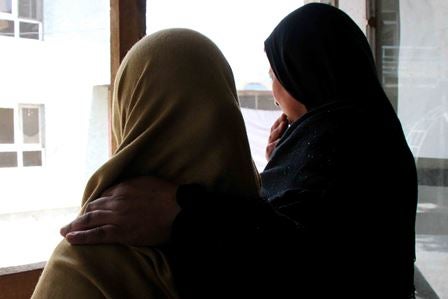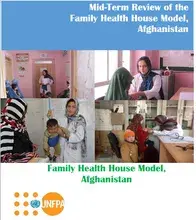"They told me that my mother had sold me to them," says Zarmina. She is just 14 years old, but she already knows what re-building her life means. She is now in school enjoying her classmates and teachers, but it has taken her a year to start recovering from a traumatic experience. Zarmina (a pseudonym to hide her identity) was kidnapped when she was 13 years old. A woman showed up at her door when she was alone at home and took her away.
"Her shoes were outside the door when I returned home," her mother recalls. "I knew something had happened to her so I went to the police. They laughed at me, they told me that she had probably run away with her boyfriend," she recalls in tears.

Zarmina was taken to a bar in Kabul where she was regularly drugged and sexually abused. "I was moved to different places for two months and 18 days, until I was released," she says. One of the men attending the establishment helped her convince the kidnapper to sell her back to her mother.
"I received a call from the woman who kidnapped her," explains her mother. "She asked me for money to have her back. We agreed on a meeting point to do the exchange. We alerted the police, and they helped by arresting the woman and her two brothers."
Then Zarmina's recuperation began. She heard about the Family Protection Centre in Kabul. "I thought they were going to make fun of me. I was scared to tell my story because part of my family blamed me for what had happened," she says.
"When she first visited us she didn't tell the whole story," says Nabila Tasali, Legal Advisor at the Family Protection Centre. "Visit by visit, she explained what had happened to her. We gave her health and psychosocial support for a year; she came here every day of the week," says Tasali.
The Family Protection Centre also offered legal advice. Thanks to their support Zarmina took her case to the prosecutor's office and her kidnapper was eventually sentenced to five years in prison. "I was with five more girls, one of them was pregnant, but they couldn't find them," says Zarmina.
The Family Protection Centre is supported by UNFPA with the Ministry of Public Health. "Survivors of gender-based violence are referred to this centre where they can access several services in one place. The centre integrates professional assistance such as psychosocial, medical and legal support and referral services into the health sector," says Dr Abdul Basit, UNFPA Gender Programme Officer.
Zarmina is one of many girls who visit the centre in Kabul. She is thankful for the support she received and recommends it to her friends. When asked what she wants to be when she grows up, she doesn't hesitate. "I want to be a judge," says Zarmina.




